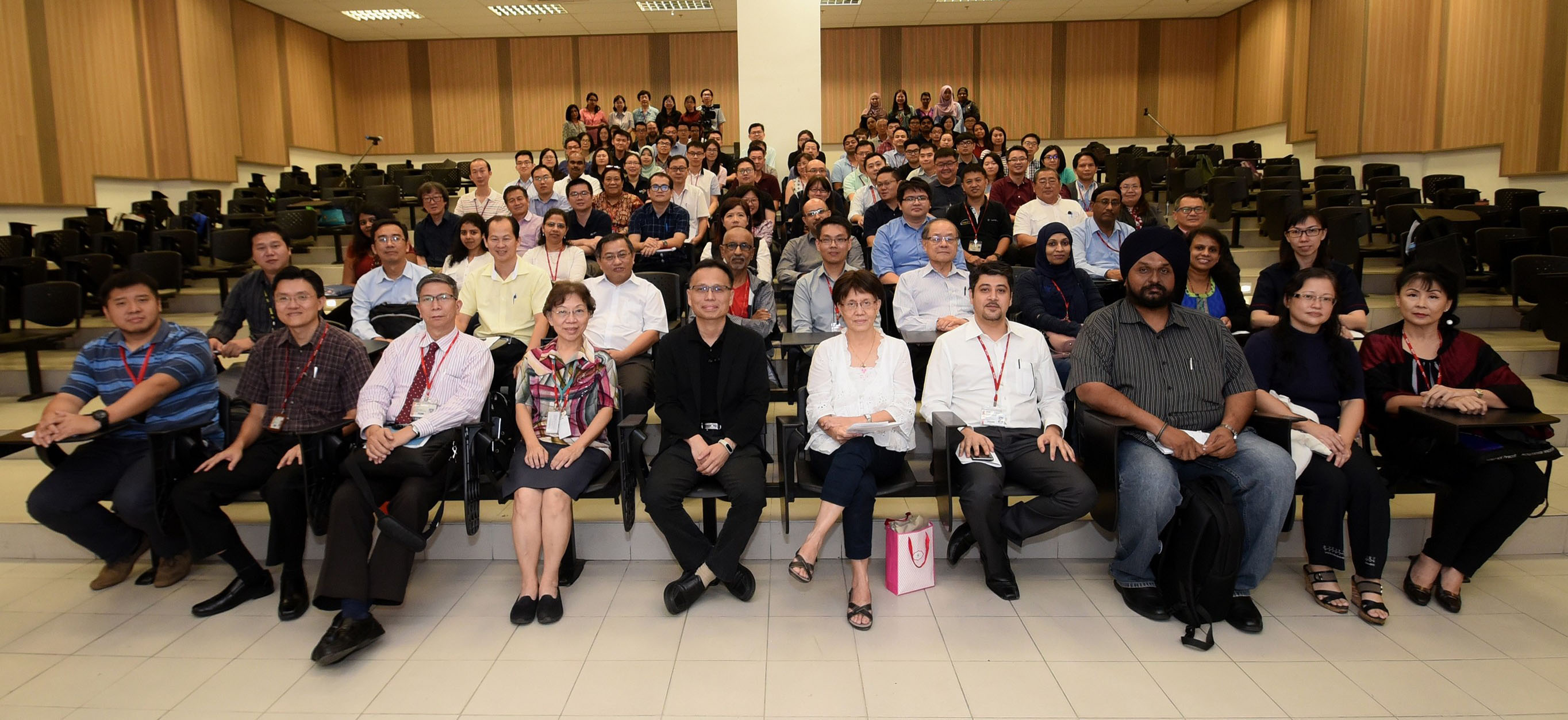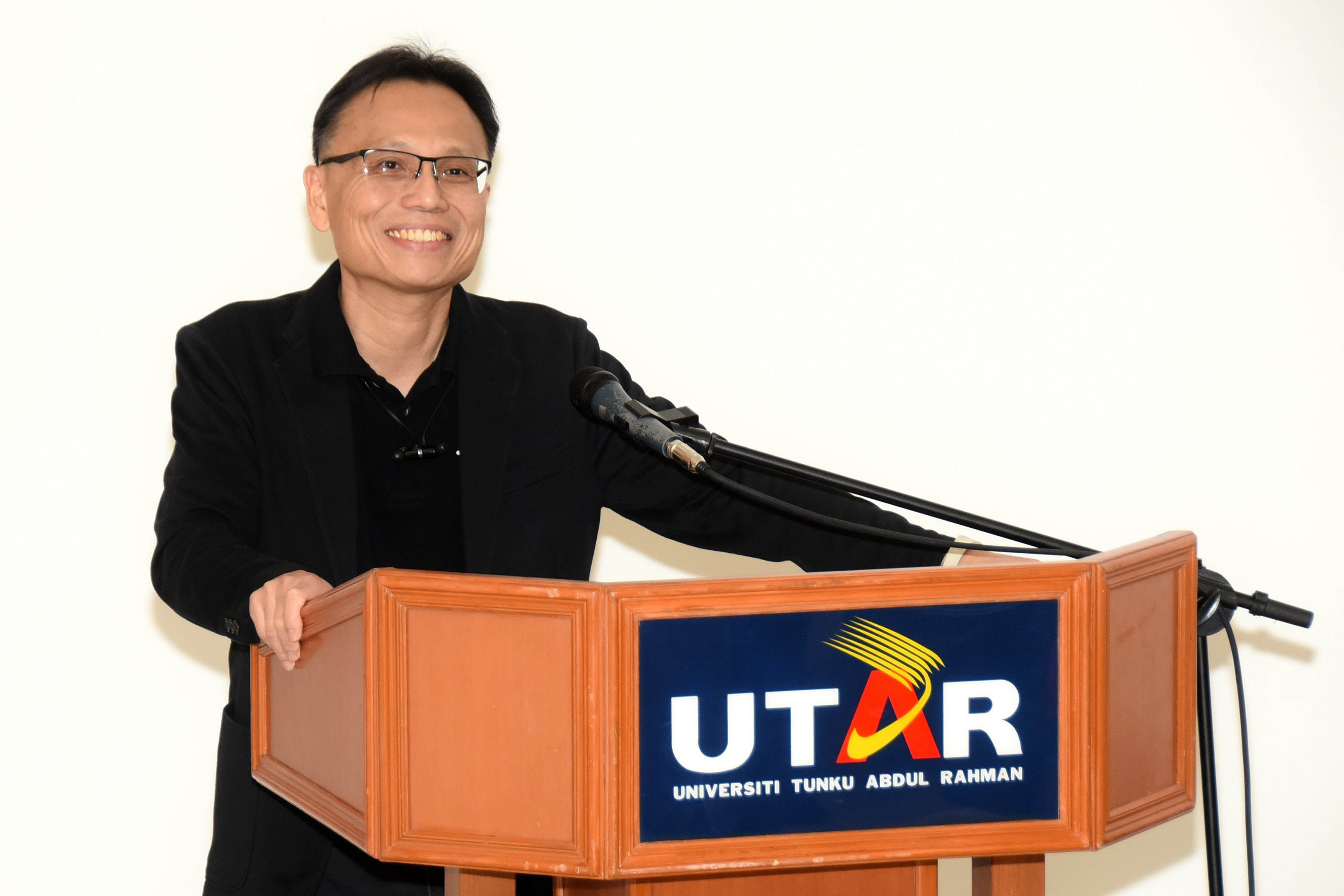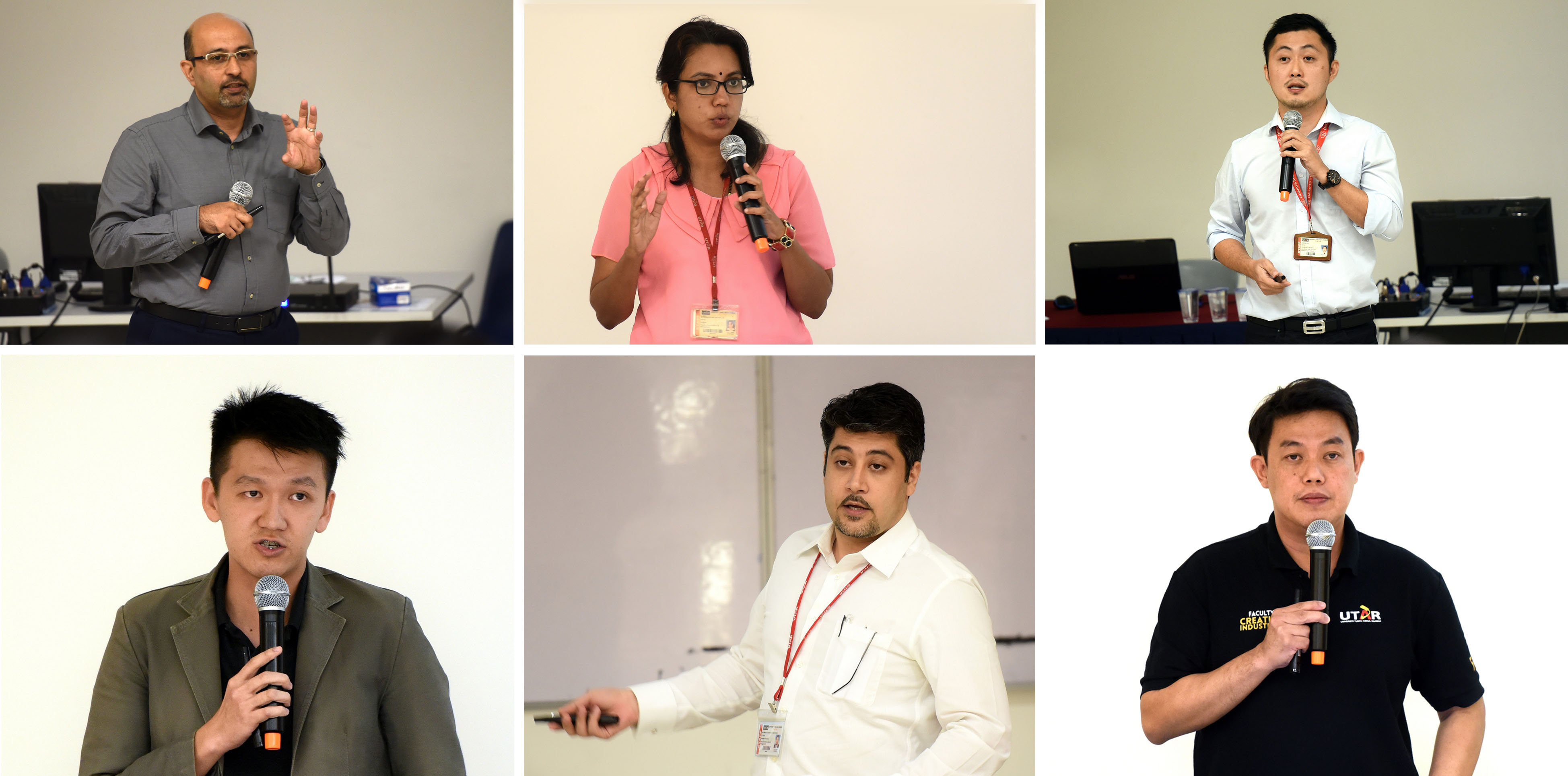

Prof Lee (front row, fifth from left), speakers, researchers and participants at the R&D Colloquium 2017 (2.0)
The Institute of Postgraduate Studies and Research (IPSR) staged another comeback of Research and Development (R&D) Colloquium on 2 December 2017 at Sungai Long Campus.
As the colloquium set its return, it continued to provide a platform for all the researchers from 30 UTAR research centres to present, interact and collaborate their research work. It saw some 130 participants comprising local and foreign researchers from UTAR research centres, lecturers, staff and postgraduate students.
Align with the colloquium’s theme ‘From Digitalisation of Education to Sustainable Cities’, the R&D Colloquium 2017 (2.0) also aimed to enable the researchers to update on their research outcomes, provide regular networking among the researchers as well as to promote cross-disciplined research collaboration.
Speaking at the opening, UTAR Vice President for R&D and Commercialisation Prof Ir Dr Lee Sze Wei emphasised on the importance of the colloquium to congregate researchers from multiple fields to share thoughts and explore better research opportunities. He said, “It is necessary to discover new ideas to conduct projects that address the real-life issues. Researchers should also keep their research ideas relevant to the actual problems that are important to the society, and collaborate with experts from other disciplines as well as the industry players to seek better solutions.”

Prof Lee highlighting the importance of research in addressing the real-life issues
The colloquium commenced with updates and sharing from the previous colloquium which was held in July this year in the Kampar Campus. Presenting on the updates were Dr Yap Wun She on “Cyber and Physical Security”, Assoc Prof Ir Dr Huang Yuk Feng on “Managing the Essence of Life – Water and Innovation in Wastewater Treatment”, and Er Pek Hoon on “Education in the 4th Industrial Revolution”. Besides, the colloquium also saw a sharing session on UTAR Strategic Research Funding Scheme (UTARSRF) by Prof Dr Yap Sook Fan and Assoc Prof Dr Gan Seng Chiew on “Aging for the Malaysian Elderly Adult” and “STRIPED Study” respectively.
The R&D Colloquium 2017 (2.0) encompassed three parallel sessions, each with its respective subtheme. Theme A which was titled “Sustainability: Indexes and Measurements” was chaired by Centre for Sustainable Development and Corporate Social Responsibility in Business Chairperson Dr Mohammad Falahat Nejadmahani. It included a keynote speech by Dr S. Mostafa Rasoolimanesh from Universiti Sains Malaysia. It was followed by presentations on “Development of Climate Hazard Index for Decision Support System” by Dr Tan Kok Weng, “Challenges of Modern City Living” by Dr Wong Kee Luen, “Landslide Risk Assessment for Social and Economic Impacts in Klang Valley” by Assoc Prof Ir Dr Lee Min Lee, “Demand-Supply Mismatch of Sustainable City and Green Economy in Malaysia” by Raymond Ling Leh Bin, and “Social Indicators” by J. Jayamalathi and Dr Chong Shyue Chuan.
The parallel session for Theme B was chaired by Centre for Photonics and Advanced Materials Research Chairperson Dr Pua Chang Hong focused on “Energy and Fuel for Green City”, with the keynote speaker Dr Baljit Singh from Universiti Teknologi Mara. Following the keynote speech were “Fabrication and Investigation into novel structures of Nanocrystalline TiO2 Dye-Sensitised Solar Cell for Achieving High Conversion Efficiency in Sustainable Energy Development” by Assoc Prof Dr Liang Meng Suan, “Biodiesel: An Alternative Transportation Fuel” by Dr Poon Hiew Mun, and “Hazardous Area Classifications and Protection Methods” by Kuan Teik Hua from KL Automation Engineering Sdn Bhd.
Chairing Theme C “Computing/ AR & VR for Future Education” was Centre for Immersive Technology and Creativity Chairperson Dr Aloysius Yapp. The parallel session consisted of presentations by Assoc Prof Dr Lim Eng Hock on “Design of Miniature Metal-Mountable UHF Tag Antennas”, Dr Yapp on “VR for Future Education”, and Er Pek Hoon on “Impact Study on UNESCO Educational Resources and Correspondent Training”.
Besides, the colloquium also saw a cross-disciplinary research proposal presentation presented by all the three session chairs on their respective subthemes.

From left: Dr Yap, Dr Huang and Er updating on their research proposals from R&D Colloquium 2017 (1.0)

Prof Yap (left) and Dr Gan sharing their research projects under the UTARSRF

Some of the speakers and presenters sharing their research ideas
As a progressive university, UTAR constantly holds conferences and colloquia as platforms for researchers to share their research findings and network with others for more collaborative opportunities.
Learn more about UTAR’s IPSR here.
© 2019 UNIVERSITI TUNKU ABDUL RAHMAN DU012(A).
Wholly owned by UTAR Education Foundation Co. No. 578227-M LEGAL STATEMENT TERM OF USAGE PRIVACY NOTICE